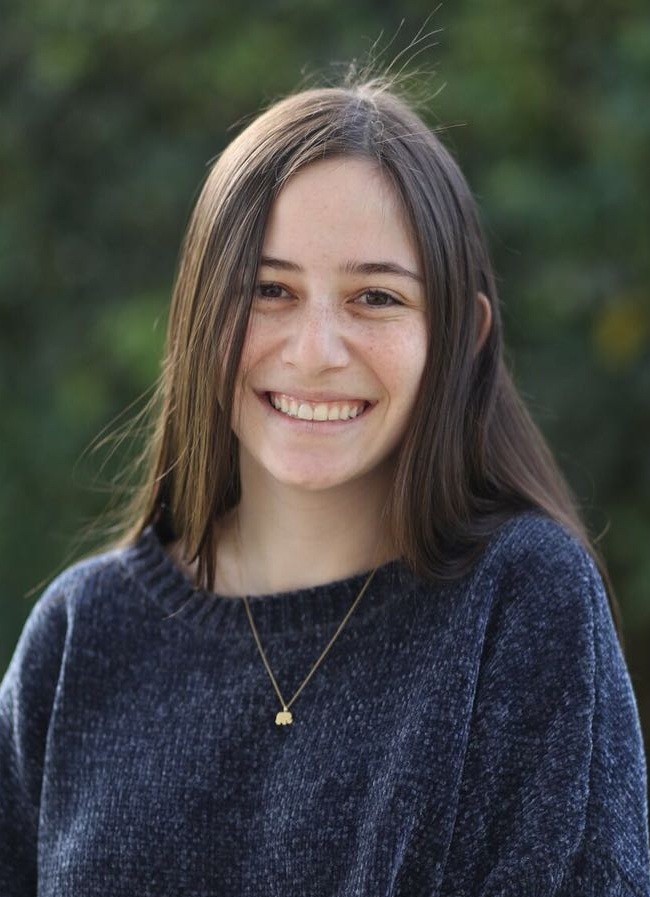Please enjoy a d’var Torah this week from Shira Forester, who will be Rosh Sollelim (7th grade) this summer. Shira spent seven summers at Camp Ramah in Wisconsin as a chanichah (camper) and four summers as a madrichah (counselor). She will be graduating this May from the University of Wisconsin – Madison, with a degree in Rehabilitation Psychology and a certificate in Jewish Studies.
Why We Eat Matzah
by Shira Forester
For me, nothing is as disappointing as the first bite of matzah each Passover. The flavorless crunch that ends with crumbs all over my plate and lap always makes me skeptical that I will be able to eat this food for eight whole days. I often ask myself: why it is really necessary that I eat matzah? I turned to the Torah and found two answers. In Exodus 12:15, God commands us:
“שִׁבְעַ֤ת יָמִים֙ מַצּ֣וֹת תֹּאכֵ֔לוּ אַ֚ךְ בַּיּ֣וֹם הָרִאשׁ֔וֹן תַּשְׁבִּ֥יתוּ שְּׂאֹ֖ר מִבָּתֵּיכֶ֑ם כִּ֣י ׀ כָּל־אֹכֵ֣ל חָמֵ֗ץ וְנִכְרְתָ֞ה הַנֶּ֤פֶשׁ הַהִוא֙ מִיִּשְׂרָאֵ֔ל מִיּ֥וֹם הָרִאשֹׁ֖ן עַד־י֥וֹם הַשְּׁבִעִֽי׃”
“Seven days you shall eat unleavened bread; on the very first day you shall remove leaven from your houses, for whoever eats leavened bread from the first day to the seventh day, that person shall be cut off from Israel.”
Here, we learn that God tells the Israelites to eat matzah without any sort of reason, prior to the Israelites packing up and leaving Egypt. Later, in Exodus 12:39, it says:
“וַיֹּאפ֨וּ אֶת־הַבָּצֵ֜ק אֲשֶׁ֨ר הוֹצִ֧יאוּ מִמִּצְרַ֛יִם עֻגֹ֥ת מַצּ֖וֹת כִּ֣י לֹ֣א חָמֵ֑ץ כִּֽי־גֹרְשׁ֣וּ מִמִּצְרַ֗יִם וְלֹ֤א יָֽכְלוּ֙ לְהִתְמַהְמֵ֔הַּ וְגַם־צֵדָ֖ה לֹא־עָשׂ֥וּ לָהֶֽם׃”
“And they baked unleavened cakes of the dough that they had taken out of Egypt, for it was not leavened, since they had been driven out of Egypt and could not delay; nor had they prepared any provisions for themselves.”
In this verse, we learn that the reason for eating matzah is because the Israelites left in a hurry and did not have time to wait for their bread to rise. We therefore have two reasons for eating matzah according to the Torah: because God said so and because there was not enough time for the bread to rise. Similarly to “na’aseh ve’nishmah,” or “do first and understand later,” we are first meant to perform a commandment “just because” and only later to gain an understanding of why we do it. We often disregard the unexplained instruction from God and focus more on the rush to get out of Egypt, leaving no time for bread to rise.
Similarly, chanichim (campers) do not talk about the camp framework that made memories possible, but rather focus on the memories themselves. For example, they do not speak about how they love tarbut (hobbies), but rather they discuss the beautiful piece of art that they created in omanut (art) or the delicious dessert they baked in the mitbachon (teaching kitchen). Chanichim do not think about the rules and instructions of the creative Peulat Erev (night activity) deliberately planned by their madrichim (counselors), but rather they focus on how much fun they had playing it. Each year, chanichim choose from a wide variety of activities that make that specific summer special and each and every summer our campers create their own memories using the provided framework. Just like with the story of matzah, we cherish the camp memories that we created ourselves.
The structure of camp not only provides us the ability to create our own memories, but it also allows us to be equals with one another, similarly to matzah. Matzah serves as an equalizer in the Jewish community. This puts everyone on the same level, which, as the bread of affliction, is not a luxurious one. When all Jews are eating matzah for a week, it creates a new reality that we share together. The framework provided at camp serves a similar purpose. Everyone packs only essentials, eats all the same meals, lives in similar buildings, and participates in similar peulot (activities). Just like the Israelites, we are given time to leave behind what was and build a new reality for ourselves.
With your first bite of matzah at the seder tonight, remember the shared experiences you are creating with the greater Jewish community, as well as the shared experiences we will be able to create with our Ramah community in less than a couple months.






